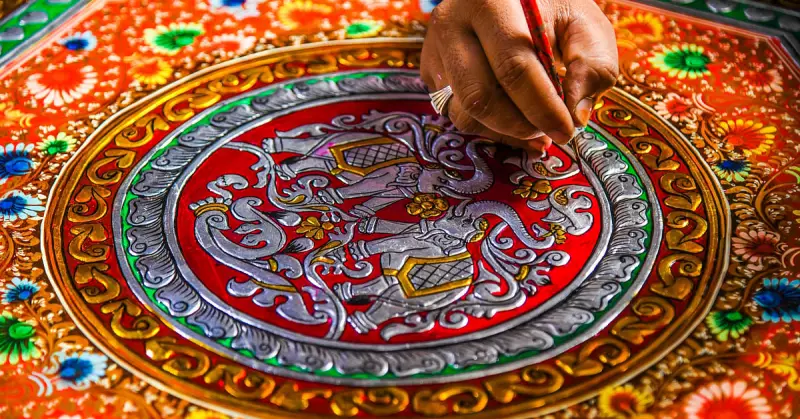
In a cruel twist of fate, the ancient Kinnal craft tradition of Karnataka is experiencing an unprecedented boom in orders while simultaneously facing extinction due to a critical shortage of wood. The very artisans who have preserved this 700-year-old heritage for generations now find themselves unable to capitalize on the growing demand.
The Artisan's Dilemma: Orders Pour In But Hands Remain Tied
Kinnal village in Koppal district has become the epicenter of a peculiar crisis. Artisans report receiving more orders than they've seen in decades, with demand coming from across India and even international markets. Yet, their workshops remain eerily quiet, their tools gathering dust.
"We have orders worth lakhs of rupees pending, but no wood to work with," laments a third-generation artisan. "It's heartbreaking to turn away customers when we desperately need the work."
The Root of the Crisis: Vanishing Resources
The traditional Kinnal craft relies heavily on specific types of wood that are now increasingly difficult to obtain:
- Ponki Marra - The preferred light wood that's perfect for intricate carvings
- White Punki - Another traditional material that's becoming scarce
- Sandalwood - Now heavily regulated and expensive
Strict forest conservation laws, rising costs, and limited access to traditional wood sources have created a perfect storm that threatens to wipe out this ancient art form.
Government Intervention: Too Little, Too Late?
While government schemes exist to support artisans, many feel the help isn't reaching those who need it most. The Geographical Indication (GI) tag obtained in 2012 brought recognition but failed to address the fundamental resource crisis.
"We need sustainable solutions, not just certificates," says a local craft organizer. "Without raw materials, this art will disappear within our generation."
A Race Against Time
The current situation represents a critical juncture for Kinnal craft:
- Younger generations are abandoning the family tradition due to uncertainty
- Traditional techniques risk being lost forever
- Market interest has never been higher, creating a unique opportunity
- Immediate intervention could save both livelihoods and heritage
As one master craftsman poignantly notes: "Our ancestors carved stories in wood for seven centuries. I fear my generation might be the last."
The question now remains whether this ancient art will survive long enough to see its renaissance, or if the very hands that created these masterpieces will be forced to find other work.





